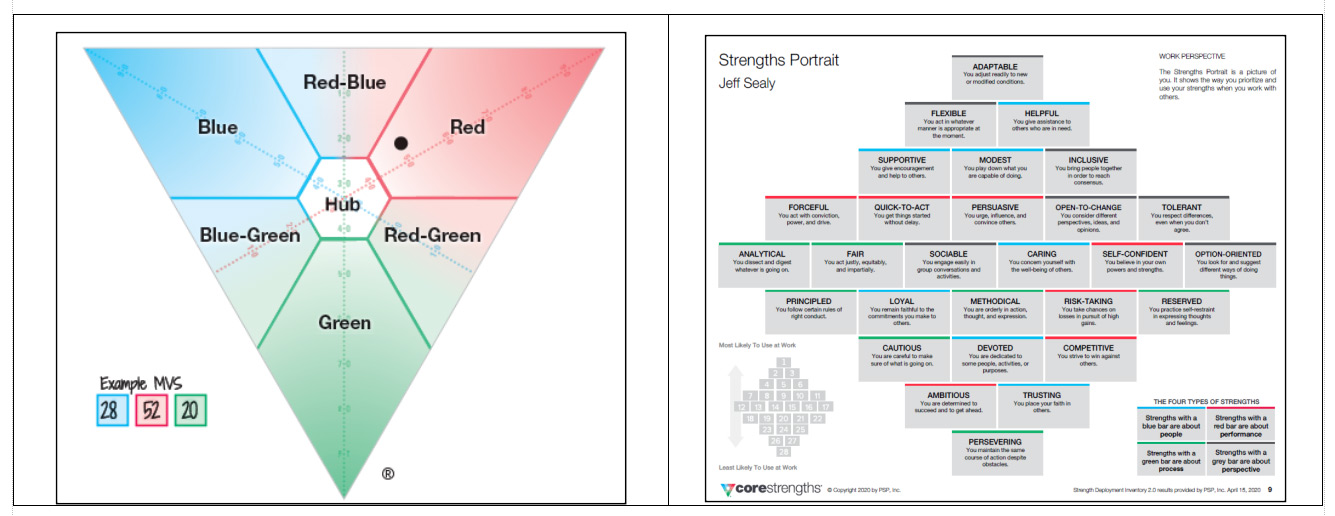Core Strengths - Results through Relationships
Core Strengths - Results through Relationships
Collaborative relationships are the key to effective teams. That is because the ability to effectively interact with others isn’t a “nice-to-have” – today – it’s non-negotiable. New goals, different team members, and changing roles, structures and accountabilities are realities that can generate poor performance. Faulty work relationships often result in conflict that impacts every aspect of delivering projects on plan and on budget. It is not the lack of knowledge, skills or motivation, but the mismanagement of relationships that creates the greatest cost to work teams.
The starting point of the Core Strengths program is awareness of self and others. Awareness comes before understanding, which in turn increases acceptance and appreciation. With newfound awareness and appreciation for others, individuals and teams can make better decisions (better choices about what strengths to use) when working to achieve desired results.
Making this work through Core Strengths is as simple as ABC: (Assess, Borrow, Communicate). This simple set of steps helps learners remember and apply their insights back in the course of their workplace interactions.
- Assess Motives: This means that we need to clearly understand what drives us and the people we work with. We need to understand why a task or project is important then leverage that insight to create more productive interactions. Knowing what is important to a person can help us prevent conflict by honouring their values. Motives also affect how we use our strengths.
- Borrow the Right Strength: This means that we need to use the right tool for the job. Going further, we need to deploy the right strengths for the right reasons; we need to be clear about our motives, because that enables us to be fully engaged and give maximum effort. When we say, “borrow the right strength,” it means that we need to first decide what results we want and then choose the strength (behaviour) that will produce those results. It means that we do not shy away or refuse to do something just because it does not fit our favourite or most comfortable strength.
- Communicate in the Right Style: This means that we leverage our awareness of others and our decisions about what strengths to use and we do so by communicating in a way that other people can understand. To do this, we need to learn the different styles of communication that are most effective with different types of people. Every person has motives and values that influence the way they see the world. With this awareness we can translate what’s important to us into language that others can more easily understand. We so often miss the mark when we tell people things the way we want to hear them, especially if they’d be more receptive to hearing them a different way.
Core Strengths is powered by the Strength Deployment Inventory (SDI) and the Strengths Portrait, two valid and reliable assessments4 that enable self-awareness. Self-awareness is essential because it is the prerequisite to self-management, understanding others, and improving working relationships. Personality is enduring; it’s who we are.
The SDI opens a window on personality by making our Motivational Value System (MVS) visible. Simply stated, the SDI shows how three primary motives blend in each person:
- People – The desire to help and develop others,
- Performance – the desire to direct action and achieve results,
- Process – The desire to establishing clear and meaningful order.
The assessment you take you what is the blend of your motives and those of your team members as a “dot” when things are going well and will show the sequence of your motives (your conflict sequence) as an arrow when you are in the various stages of conflict,
You will also be presented with you Strengths Portrait to see what preferences you have in the strengths that you deploy and whether your strengths deployment (your behaviours) are consistent with your motives.

